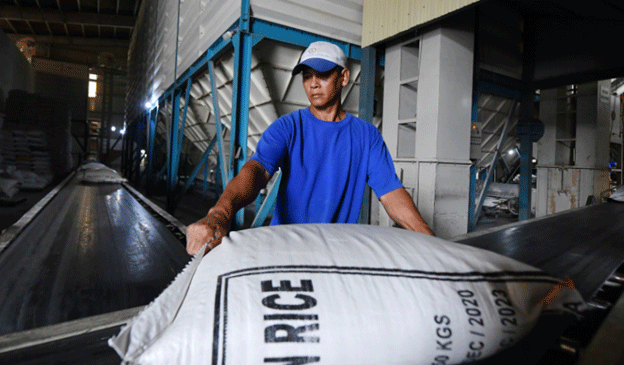In 2024, Vietnam’s rice exports reached an all-time high of $5.05 billion, supported by over 8 million tons of rice shipments by mid-November. The average export price rose to $626 per ton, a 12% year-over-year increase, surpassing competitors like Thailand, India, and Pakistan. This success reflects the growing demand for Vietnamese rice varieties, including 5%, 25%, and 100% broken rice.
Despite these impressive figures, Vietnam faces critical challenges. While the quality of its rice competes with global leaders, branding and sustainability have yet to catch up. A globally recognized national brand for premium rice remains elusive, hindering the country’s ability to command a stronger presence in premium markets.
Challenges in Branding and Sustainability
A significant barrier to developing a strong Vietnamese rice identity lies in the lack of coordination within the industry. Farmers and enterprises often engage in contract disputes, disrupting supply chains. Additionally, rice production accounts for 0.9% of Vietnam’s greenhouse gas emissions, a rate higher than regional peers like Thailand and the Philippines. These issues underscore the need for a more sustainable and unified approach to production and marketing.
The One-Million-Hectare Initiative
To address these challenges, Vietnam is implementing the “One Million Hectares of High-Quality, Low-Emission Rice Fields” initiative in the Mekong Delta, the country’s largest rice-producing region. As of November 2023, 12 of 13 provinces in the delta have adopted this initiative, which aims to promote sustainable farming practices, reduce emissions, and enhance product quality.
Successful pilot models in provinces such as Dong Thap and Kien Giang showcase how active collaboration between farmers, corporations, and government bodies can yield promising results. For example, these models have demonstrated efficient use of ecological data systems, technology-driven farming practices, and cooperative development to improve productivity and market access.
The Role of Cooperatives
Strong cooperatives are pivotal for modernizing Vietnam’s rural economies and ensuring long-term success in the rice industry. Currently, Mekong Delta cooperatives average only 80 members, far below Thailand’s average of 1,500. However, high-performing cooperatives like Tan Hung and Phu Thanh have shown how scale and efficiency can drive better outcomes. These cooperatives provide mechanized harvesting, quality control, and transportation services, aligning with export standards to meet global demands【9】.
Vietnam’s record-breaking rice export revenues underscore its growing importance in the global market. However, challenges in sustainability, branding, and industry coordination must be addressed to unlock the full potential of Vietnamese rice. By building on initiatives like the one-million-hectare program and fostering strong cooperatives, Vietnam can establish itself as a leader not just in quantity but in quality and innovation.
Error





